This post may contain affiliate links.
If you subscribe to our weekly email newsletter you’ve been seeing me mention last week’s dealer training conference for some time now. After hearing from a few of you curious about what exactly we were there presenting on, I thought I’d share it with y’all here.
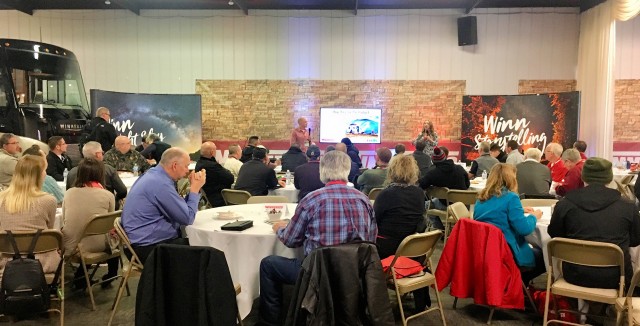
Winnebago invited RV sales personnel from all over North America to come for a couple days’ worth of factory and rig tours as well as educational sessions from OEMs and Winnebago engineers. We were the guest lunch speakers asked to talk about the evolving RV buyer.
Frank Hugelmeyer, the President of RVIA, summed it up perfectly when he said this:
“Today’s consumer is changing, and the next generation of buyer is unlike anything we have seen to date.”
That was pretty much the running theme for our discussion. We broke our talk into 4 parts:
1. Who is this new type of RV consumer?
Trying to identify a non-traditional vs. traditional RV enthusiast gets tricky, but there are certainly some categories they tend to come from. For example:
Millenials: People born from around 1982-2000 (current ages 18-36) grew up in an age where the internet is the way of life. They’ve had information right at their fingertips and likely don’t remember life any other way. A few fun facts from Millenial Marketing: Millenials are 2.5x more likely to be early adopters of technology than any other age category. 79% of millenials would like to visit all 50 states. 69% say they crave adventure.
Gen Xers: People born from around 1965-1981 (current ages 37-53) are arguably the best educated generation with 29% obtaining a bachelor’s degree or higher according to socialmarketing.org. Some very surprising research from Nielsen revealed that Gen X is the most connected generation. And how about this: Nielsen also found that Gen Xers use social media 40 minutes more each week than millennials! More surprises: Gen Xers are more likely than millennials to stay on their phones at the dinner table and spend more time on every type of device — phone, computer, or tablet. I can hear the millenials heckling us GenXers now… we used to give them so much grief when they were growing up, and now it’s us glued to our phones!
Outdoorsy Types and Specialized Hobbies that require gear: The new type of RV consumer isn’t only about age, it’s also tied to interests and activities. If an RV buyer identifies with a specific pursuit, like cycling, kayaking, surfing, climbing, etc., they’re likely a non-traditional buyer. If someone needs their RV to haul their musical equipment to their next gig, they’re a non-traditional. People that have gear requirements could probably care less about luxury appointments in their next RV, it’s all about the RV meeting the needs of what they want to DO. If their inflatable kayaks don’t fit in the storage space, they’re not interested no matter how pretty the coach is.
Other Non-traditional Road Warriors: By “other”, we mean groups like the young full-time families, solo travelers, as well as those working remotely. Any of these would fall into the non-traditional RVer category and are going to have specialized needs for their RVs.
Most of the non-traditional RVers out there are going to fall into at least one of those categories above. Besides those, there’s one other common thread. They all try to avoid, or even openly reject, established RV trends. So, for example, if you told them they could only take their RVs to traditional RV parks, they’d say no way. Walmart parking lots are more appealing than that. They want to take their rigs to remote and beautiful locations, and they prefer to seek out free campsites over commercialized ones. They don’t want to be hooked up if they can help it. Another example of the non-traditional RVers rejecting RV trends: many hate trips to RV dumps so much they change out their toilets for composting or cassettes.
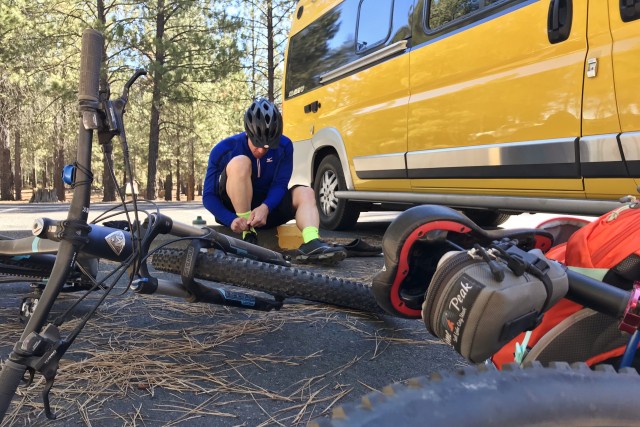
2. How do they see RVs?
So, for an RV salesperson, the most important thing they should know about this different type of RV consumer is that these people are not really buying an RV. At least, not in the sense the dealerships are used to. Instead, they’re buying meaningful experiences, exciting adventures and memories that last a lifetime. The RV is just a catalyst to get them there. It’s merely a supporting role to the things they want to do. It’s not about “keeping up with the Jones’s” for these guys. Instead of posh appointments and aesthetics, the non-traditional want “useful”, they want technology, and they want self-sufficient RVs that require no hookups for as long as possible.
One of the best examples we’ve seen of non-traditionals seeking useful RVs that act as catalysts for their pursuits is watching the Revel at RV shows. Stick around long enough and you’ll see people checking out the Revel under bed storage area with a tape measure; writing down measurements from all sorts of angles. These people clearly have a very specific need and they’re checking to see if the Revel can meet that need. And if they measure and find there’s no way their gear will fit, not even the best sales guy is going to convince them to buy that rig.
3. Where do they get their information about RVs?
Being that the FitRV community is predominantly non-traditional RVers, we did a survey last spring asking our FitRV community this very question:
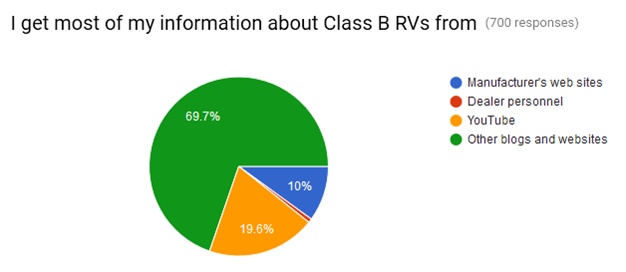
Granted, this is a slightly biased sample being that we polled people on our website AND we only asked about Class B’s, but still. We’d bet this isn’t that far off from an unbiased representative sample. The takeaway here is that dealers should be aware that people aren’t coming to them (or even their websites) as their primary source of information. They need to expect this and be OK with it.
There’s also another big area where non-traditionals are getting their information; one that probably rivals “other blogs and websites”:
The Wonderful World of Social Media
By that I’m mostly talking about Facebook groups, with my very own “Travato Owners and Wannabes” Facebook group a perfect example. I started that group in the summer of 2015 when we bought Lance. Since then, it’s grown to almost 7,000 members. SO many of the people joining the group do so because they’re in the “research phase” of ownership and they want to hear what actual owners have to say. This is something that’s evolved especially in recent years, and any sales person worth his/her salt is already in these groups following them closely and learning everything he/she can from actual owners.
4. How do they see the RV sales process?
As much as RV dealers are trying to get away from negative stereotypes of the RV buying experience, they still exist. So, when a non-traditional who is new to RV buying finally walks into the dealership, it’s quite likely they’ve got a pretty low bar set. They’ve braced themselves for a process filled with deception, similar to the used car “game.” They expect it to take hours (if not days).
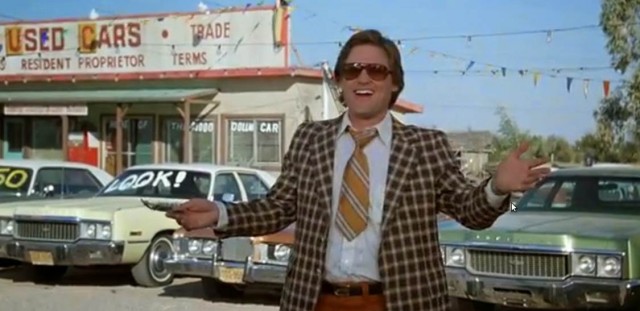
Since non-traditionals value efficiency and are tech savvy, they’d much rather have the “Tesla” experience: no pressure showrooms, the ability to configure product online, and a cut-and-dried quick purchase process that doesn’t have them sitting around the dealership for hours on end. Unfortunately the RV sales process isn’t at the Tesla level just yet.
But just because the expectation is that the purchase process is going to be lengthy and adversarial doesn’t mean that’s the reality. With the bar set so low, it’s easy for dealerships to actually impress the RV buyer and streamline the process. Much of this falls on the RV sales person themselves. From our interviews over the years, we’ve observed the salespeople who are the most successful take on more of a “realtor” approach to working with their customers. Realtors work more as an advocate for their clients by learning their clients’ needs and requirements. They may not be an expert on all the houses they show, but they’re never afraid to say “I don’t know but I can find out,” as opposed to giving what might be inaccurate information just because they feel pressured to come off as an expert.
So there you have it, that was our discussion with RV sales personnel last week.
Now your turn! What about you?!! James and I would love to hear what your buying experiences were… good? bad? lengthy? Did anything surprise you? Until that Tesla experience arrives in the RV industry, let’s continue to share our own experiences. The more we do, the more pressure it creates for the RV industry to evolve and improve their sales processes.



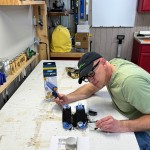
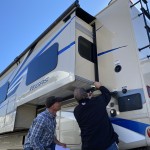
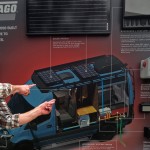
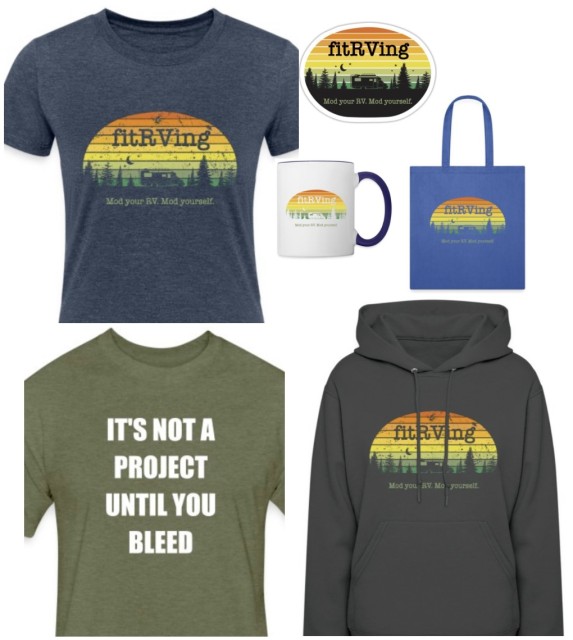




Great article! If you recall, I wrote you a note over a year ago thanking you for providing *far* more information on the upcoming Revel than I could get from any local dealer. I suggested that you find some way to become an ‘on-line’ dealer so at least you could get the commission rather than the dealer who I didn’t think added any value to the process anyway. In the end I learned that RV shows are the place to buy anyway and the Revel layout wasn’t quite for me. I opted to buy a Carado Axion and modify it (heavily) to suit my GenXer Outdoor lifestyle. However, through the whole process my opinion never changed about RV dealers and now with the demise of Hymer NA I feel that my gut instinct was correct all the while. Again, push for some sort of factory direct model – I think there is a market for it.
I hear you (and remember you).
We’ve actually brought this up to our manufacturer friends in the past, and they’ve all said that they’d love something like that, but…
The dealership laws state-by-state would make that impossible.
From the limited research I’ve done, all dealership laws appear to be crooked, and put in place by good-old-boy networks and state-legislature cronies to insulate themselves from any real competition.
The more you get into it, the more disgusted you get, so I stopped.
HI James,
I’ve lurked around your site for a few years now but I finally decided to comment, we are in our early 60’s retired and fit into the adventure RV lifestyle. We wanted a small versatile rig that met our needs- a motorcycle mountain bikes and an inflatable kayak. After not finding anything off the shelf I ended up buying a 13′ foot toy hauler and completely remodeled (a la Das Bus) the interior. We now have a full XL bed that lifts to the ceiling (no happijack here I built my own lift system using torsion springs) a nice open feel and a dry bath. It has 380 watts of solar and an 2kw inverter.
I considered class B but to bring the motorcycle we would still need a trailer so it made more since for the trailer to be the camper.
Anyway thanks for pushing the manufactures toward the adventure lifestyle. I’m still looking for the dream rig.
Keep it SMART Small Minimal Adventurous RV Travel
There was no salesman involved when we bought our Lance 1575 TT. I did my research online. I read on the LanceOwners forum that Richard’s Boat and RV in Lancaster, CA was a discounter. I contacted Richard Wade, the owner, and told him how I wanted my 1575 equipped. He sent me a purchase order with the price, and I sent him a $1,000 deposit. There was essentially no sales process involved nor was their any haggling.
I looked briefly at other makes of comparable sized trailers. They were so inferior compared to the Lances. Purchasing my tow vehicle was a similar process. After doing online research of mid-sized pickups, I chose a GMC Canyon 4×4 with the 2.8 Duramax diesel. I contacted Robideaux Motors in Coeur d’ Alene, ID which did a better deal than the vaunted Dave Smith Motors in Kellogg, ID.
No sales people sold me anything with one exception. Contrary to my normal instincts, I bought the pricey extended warranty package from the auto dealer. I’m in the insurance business and understand the value of good insurance. I decided to buy good insurance for my Canyon.
There is another interesting point I spotted in this article. There was a reference to not wanting to do the “black tank” thing. The alternative was to use a composting or cassette toilet. A cassette is still wet and stinky. I wanted dry. I asked Richard Wade if the factory would deliver my trailer without the toilet. He said they would not. However, his dealership removed the factory plastic toilet and gave me a $100 credit. I installed a Nature’s Head composting toilet.
Great article! I’m a current class C owner looking to change in the next year or so to a class B. Totally nailed the concept of the RV being part of the experience as we travel to new places. Now to my question…there seems to be a growing market to rent out Class Bs to other adventurers who may not be comfortable driving a larger motor home, have you seen this in your research and travel?
Build a sturdy but unique RV with fair off-road capabilities, include a clever and secure storage system for bikes and kayaks, wire it for Wi-Fi and BT everything with extended cell reception, and get out of the way.
Interesting.
If you’re building one, we’d like a spot on the wait list… 😉
Spot on the money. I’d add to that, enhanced off grid abilities. I’ll take that in a 14-18ft travel trailer too please.
Interesting article and I agree with most all the points they made. As for #3, “Where do they get their information about RVs”, in that pie chart, when you add “youtube” and “other blogs and websites” together, those two alone comprise over 89% of the total which is not at all surprising. When researching trailers before purchasing our Lance, we exclusively used the internet and only went to the local dealer to walk inside and “feel” the units. The only purpose a salesman performs is cementing the deal and that usually means meeting a price point since internet research also gives one prices to compare with.
Of course, as far as model preference goes, everything is generationally motivated. Speaking personally, 40 years ago I was perfectly happy camping out of my 1965 VW bus and often thought to myself, “I see myself doing this forever cuz it just doesn’t get any better than this”. As time moved on, we then found things change and age being one of them, longing for a softer bed, shower and toilet ruled the thought process and here we are today. I think this article is a reflection of that same mindset but you seemed to focus on the younger, more mobile age groups which is probably why it seems the desired RV in this article is smaller and more nimble. They too will have a change in attitude going forth over the years, IMHO. In other words, this is really nothing new other than exposing youth for what it is and also the fact that there are more choices to choose from today compared to 40 years ago.
Hi Randy –
We hear from a lot of people that they already know what they want before they ever set foot in a dealer – and that they wanted to reduce the dealer’s role to just an order-taker. We tried to get that across to the dealers we spoke with, and a lot of them “got it” or had already had experiences like you describe.
Regarding the correlation between RV preferences and age. I won’t dispute that for some folks, that’s true. But it certainly isn’t for everybody. We have many readers who are in their 70s and more, are active (cyclists, whatever), and appreciate the mobility of their class B. For them, age isn’t the driver… their drive is the driver. They still have plenty they want to do, and they don’t want an RV sales person pitching them a 5th wheel with a big screen because they’ll be “more comfortable”. Some folks will surely want that experience as they age, but that’s the “traditional” profile. We were focused on “non-traditionals”, and trust me, there are plenty of us out there!
But we do agree with you that, yeah – we do have more choices these days. There’s a rig for everyone!
If I do NOT want ANY extended warranties…I do NOT WANT ANY EXTENDED WARRANTIES! NONE!
I nearly canceled the deal 3 years ago when the salesman at Camping World Cocoa Beach FL. would not take NO for an answer!
I actually walked out and was in the process of leaving when the manager of the entire place came running after me to apologies!
Hi guys, excellent post as usual! I would add a fifth category to your presentation; service after the sale. These class B’s are a significant financial outlay, and once one decides to take the leap it’s critical for the vendor to always be there. Buyers are getting younger as you so aptly indicate, and good service will result in future sales. Purchasing an RV should not be a bad dealer experience, but rather the beginning of a beautiful relationship!
We did bring up service to the dealers assembled – but that gets into a whole other discussion. And a long one to boot.
But when you get right down to it, we don’t think new or non-traditional RV buyers have different service expectations from anyone else. We all want prompt and efficient service, regardless of demographic.
So, to keep things manageable, we kept this focused on just non-traditionals, and just on the sales process.
You guys completely hit the nail on the head with identifying my demographic and what I want in an RV (and obviously yours as well)
Basically; a way to sleep more comfortably than tent camping while on mountain bike vacations, access to some off road spots, ability to haul all of our gear, and keep the dogs safe while out on bike rides.
I imagine that like most other RV buyers nowadays we did all of our research online and came prepared to buy exactly what we wanted once we found one physically available in our area. We had very little traditional ‘sales’ interaction with the dealership, and, also probably a common story, knew more about the rig than the salesperson helping us did.
We chose the Pleasure Way Plateau XLTD because really it was the only RV that satisfied all of our criteria in one package; Diesel, under 23 feet in length, no slide outs, good storage, decent ground clearance, and had a dry bath shower (important when you are a dirt bag biker coming in from a wet, muddy ride).
Because we already knew exactly what we wanted, the buying process took about an hour, and honestly the helpfulness of the salesperson wasn’t a factor as we weren’t counting on their expertise to help us make the decision. It would be nice if dealership salespeople were more clued in to this new buying generation, but this might take some time to catch up I imagine.
What I really want? a 4×4 version of this exact platform, as the Revel is a little too small. Can you gently suggest that one? 🙂 How ’bout it Winnebago/Pleasureway/Roadtrek, someone….
You’re EXACTLY the kind of buyer we’re talking about.
If they made one, it sounds like you might want a “Revel XL” or something like that.
Although your dry bath requirement is likely to keep you out of the true Class Bs, and in a small C.
Class C (what the Plateau XLTD is) 4×4? I don’t think there are any and the reason is not Winnebago, Pleasureway, or Roadtrek.
It’s the manufacturers of the base vehicle. From what I can find Promaster, Mercedes and Ford do not make a 4×4 cut-away chassis for upfitting into a Class C. In North America, Mercedes makes only 4×4 in a cargo van, and no 4×4 van from Promaster or Ford. I think one would have to go completely custom, with a custom 4×4 conversion. Seems that those who want larger RVs with 4×4 turn to the “expedition” custom vehicles.
For almost two years, we had a nice contact with a local Spokane salesman who knew we had every intention of buying a Travato 59K. When our financial numbers allowed us to make a purchase, we arrived at the dealer one Saturday to make a purchase. After 10 minutes, we could see the vintage car dealer tactics were in play. It was expected but we wanted to buy locally if we could. In 20 minutes we politely exited. On Sunday we completed a purchase from another semi-local dealer over the telephone approximately 450 miles away. We drove out there the following Friday and stayed in a conveniently close hotel that night. We spent a bit of time Saturday morning going over our RV. As I expected, the walk through Tech was not versed in the operation of the TRUMA Combi and completely missed that the Solar Control panel was not indicating charging from the roof panel. I dealt with that later. A pair of connectors were not plugged together between the control panel and the solar panel.
We completed the motor vehicle paperwork and financial transaction in less than an hour. The only deviation deployed which we expected was the attempt twice to sell us an extended warranty. Overall it was a short and clean transaction with some very nice people. After a nice afternoon and dinner later at a local restaurant, we stayed the night at the dealer in our Travato so we could check out all of the systems with a night of actual use. Satisfied, we left the next morning for a leisurely drive back home.
All in all a very pleasant sales process followed by a year of shakedown camping trips and miscellaneous personal additions to make our future travels even more fun.
We knew what we wanted, how everything worked and what we would pay. We wanted to provide our local dealer with the sale but already knew that there way of doing business might not work out. It is ok, we do not express any ill thoughts. Ok, Every time we drive by we both semi-sing the Nobody beats an XXX deal” jingle which they no longer play on the air. If we were to walk in their today or run into any of the staff elsewhere, we would still be friendly. You never know if we might have future dealings or make use of their service and parts departments. Why burn bridges? The bridge might be updated, Perhaps we want to try crossing that bridge again someday.
In the course of almost a full year of ownership now, the RAM Promaster chassis has performed flawlessly. The driver/passenger seating for long distance are excellent. The steering wheel positioning seemed like it would be slightly awkward has turned out to be great. The handling even in strong winds, turning radius and ride on all roads is terrific. The mileage continues to be awesome wherever we drive this front wheel drive, V6 engine based RV. Engine oil with filter changes are the easiest I have ever experienced. While you can always expect some oil spillage, I have completed these changes without only a few drops spilled.
We have had three very minor warranty issues in the coach which I took care of myself, two of which required replacement parts. Both manufacturers were easy to work with directly. One notable rattle that developed about month two of ownership was tracked down to be loose self tapping screws for the mounting brackets used on the microwave. I added star lock washers before tightening the screws. Issue solved.
Our experience with our 2018 Travato 59K from our pre-purchase study, managed purchase process and subsequent travels down the road has been a total pleasure. Our only rough edges with the 59K itself has been figuring out why the TRUMA Combi failed to work once. A bit of head scratching until I discovered the TRUMA is plugged into a dedicated GFI outlet hidden (to discourage you from plugging other things into it) under the driver side bed box that needed to be reset for unknown reason. And changing the water filter located under the driver side bed is a challenge to limit the amount of spillage needs to be addressed in my opinion.
Like any RV, the Travato is a complex mix of a lot of parts and equipment. The folks at WINNEBAGO have done an excellent job from stem to stern on the 59G and 59K models with the RAM Promaster chassis. Your dealer experience will still vary with old school methods at some. Your not going to change that dealership by trying to control them in your own transaction or simply throwing out unreasonable lowball prices and demands. But there are a growing number of dealers out there that in part or whole are beginning to work with customers in a new and pleasant way.
Well written!
I told Stef I thought her write-up was every bit as good as our presentation. Maybe better!
The guy in the picture in the LOUD jacket doesn’t have that jacket anymore, but it is still the SAME guy. We gave up RVing because of that guy. He will try to sell you whatever the Sales Manager tells him to move, The great little RV he sold us last year….He can’t give us very much of a trade-in allowance because, “no one is buying little RV ‘s this year.”
What I have found are salespeople that have very little knowledge of the product they are selling. I also feel its hard to push a product like Travato that owners have good things to say about it yet WB still only warranty for one year.